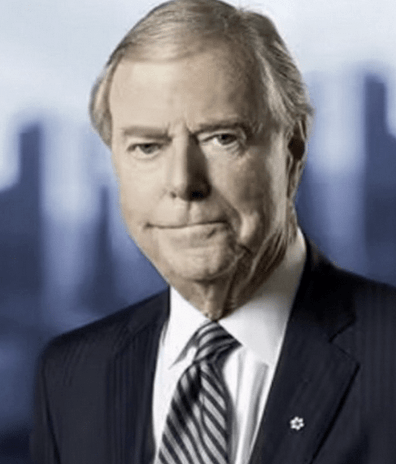The Battles Ahead for Pierre Poilievre

By Don Newman
May 8, 2025
Pierre Poilievre has moved quickly to consolidate his leadership of the Conservative Party in the wake of its disappointing loss in the April 28th general election and his own stunning personal loss of the suburban Ottawa riding of Carleton, which he had held for 20 years.
But Poilievre’s placement of faithful lieutenant and former leader Andrew Scheer to lead the party in the House of Commons and choice to run in the safe Alberta riding of Battle River-Crowfoot to regain a place in the House of Commons are only stopgap solutions that may just delay a future fight for his control of the party.
From Scheer on down, Poilievre allies have been trying to portray the election loss last month as a victory of sorts, a stepping stone to a win for the Conservatives next time, much the way Scheer did when he lost the 2019 election to the Liberals but reduced them from a majority to a minority government in the House of Commons. But Scheer didn’t last long. Soon the knives were out, and he was deposed from the party’s top job.
The same could be true for Poilievre. It is true the Conservatives won more seats than they previously held. It is also true that they collected more than 41% of the popular vote, their highest electoral support since 1988. But it is also true that Mark Carney and the Liberals won even more seats and more of the popular vote than the Conservatives, which is why the Liberals are still in power and proving the old sports adage that statistics are for losers.
Poilievre has been moving to secure his position before any opposition can be organized against him. But opposition will be organized, and future opponents have time on their side. In addition to electing Scheer to fill in as Opposition leader, the Conservative caucus also gave itself the power to easily trigger a vote on the party leadership under the terms of the Reform Act if the members decide they want one.
This was the mechanism used to get rid of Erin O’Toole after he lost the 2021 election. And Conservatives vote on the party leadership any time the party loses an election. That vote is scheduled for 2026, when the party will have a convention. It is not unimaginable that Conservatives wanting a leadership change will organize within both the caucus and ahead of the convention to make replace Poilievre.
Throughout his career in Parliament, Poilievre has had just one political style: attack, attack, attack, which makes his current task bigger than just the logistical issue of regaining a seat and the tactical need to of hold onto his party’s support.
This summer, Poilievre will work getting back in the House of Commons. That should not be difficult. Conservative Damien Kursk was re-elected in Battle River-Crowfoot with more than 80% the highest in Conservative Alberta. Once back, Poilievre will again become the leader of the Opposition, on-site enforcer of party discipline, and principal antagonist of the Liberals in question period.
That could produce a conundrum for Poilievre and his party. His slashing, take-no-prisoners style of attack drove the Conservatives to a 25-point lead in the polls when his target was the unpopular Justin Trudeau. But that lead evaporated when Trudeau left, and as the new Liberal prime minister, Mark Carney has both the public support and the international respect as a former central banker and economic crisis manager to be viewed as a wartime leader fighting Donald Trump both at home and abroad, which will make it harder for Poilievre to take cheap shots at him without paying a price of his own.
That change in context became obvious during the campaign, when Poilievre’s popularity lagged behind his party’s. In the final two weeks of the before the Election Day, Poilievre disappeared from Conservative television ads, replaced by a voice from the past, former Conservative Prime Minister Stephen Harper, personally vouching for Poilievre. That was a questionable choice since Harper is three leaders removed from the party and lost power to the Liberals in 2015. It makes more sense when you realize that both Harper and Poilievre have run the party with very little room for other people to gain much profile.
Throughout his career in Parliament, Poilievre has had just one political style: attack, attack, attack, which makes his current task bigger than just the logistical issue of regaining a seat and the tactical need to of hold onto his party’s support. It also includes the more transformative challenge of rolling out a different personality, which may be his toughest hurdle of all.
Another major challenge may come from his adopted political home. Alberta Premier Danielle Smith has outsourced her federal-provincial relations agenda by making it easier for disgruntled people in her province, of which there are many, to hold a referendum on any question they want, the first step toward a referendum on separating Alberta from the rest of Canada.
Smith has also published a list of demands she says her government wants met by the new federal Liberal government within six months or there will be a constitutional crisis in Canada. That and the referendum law changes could be sowing the seeds for a nasty confrontation between Alberta and much of the rest of the country.
Which, as a source of national division, would create a problem for Alberta’s federal MPs. Especially one with unrequited prime ministerial aspirations.
Policy Columnist Don Newman is an Officer of the Order of Canada, and a lifetime member and a past president of the Canadian Parliamentary Press Gallery.
